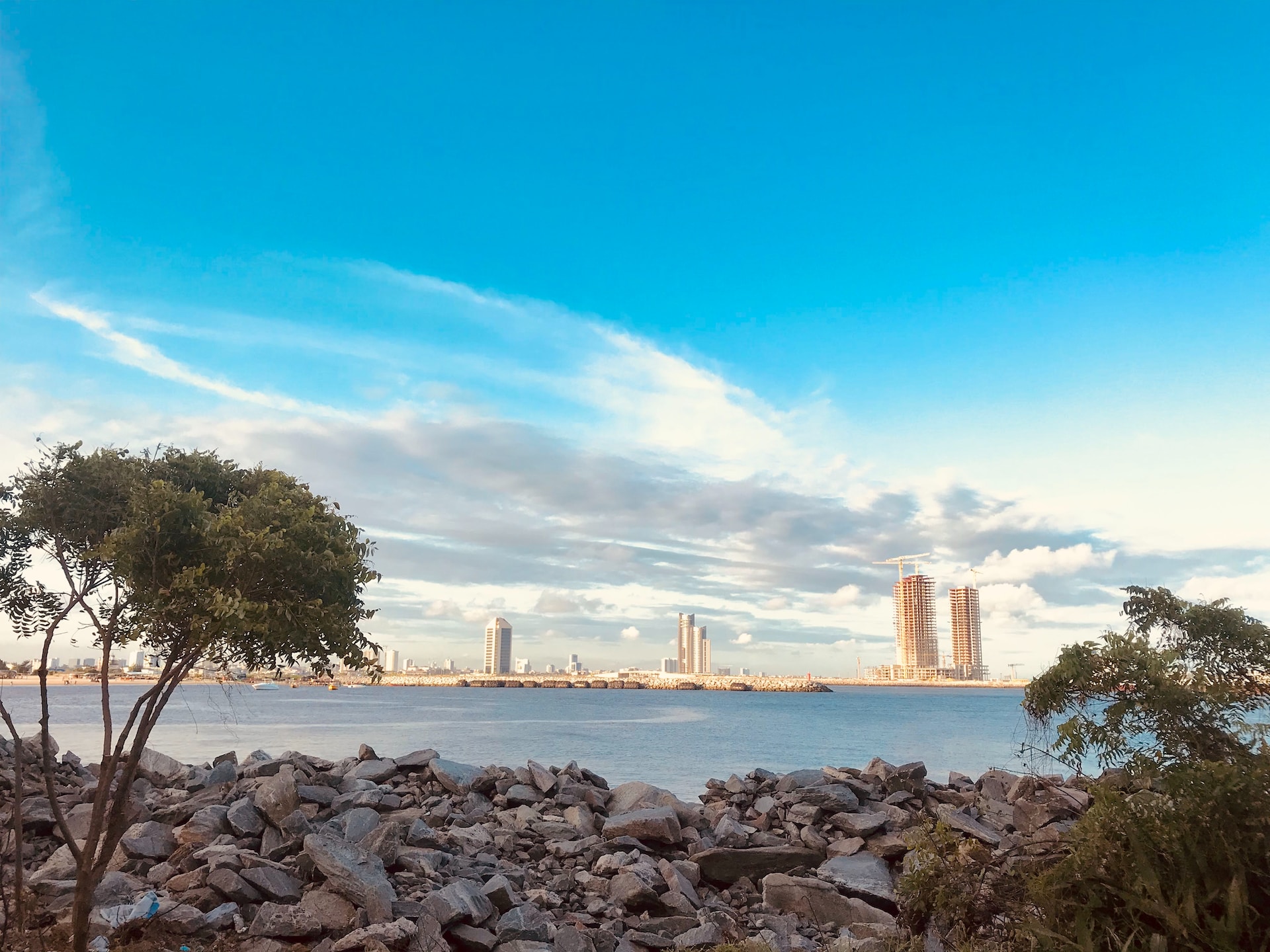From drinking untreated tap water to being bitten by an infected mosquito, there are plenty of health risks you may encounter while in Nigeria. Here are the potential issues to be aware of, along with travel advice regarding ways to maintain a healthy lifestyle during your visit.
In recent years, Nigeria’s struggles with civil unrest, terrorism, and rising crime in its major cities like Lagos have brought international attention. Before planning a trip here, it’s reasonable to wonder: is Nigeria safe to travel to at this time?
- Staying Healthy in Nigeria
- Common Diseases Found in Nigeria
- Required Nigerian Vaccinations for US Travelers
- Medical Assistance
- Travel Insurance
- Water and Swimming
- Mosquitoes
- Air Quality
- Staying Safe in Nigeria
- Crime in Nigeria
- Civil Unrest
- Terrorism
- Climate and Natural Disasters
- Local Laws in Nigeria
- Embassies and Consulates in Nigeria
- Prepare for Your Nigeria Trip
Staying Healthy in Nigeria
Common Diseases Found in Nigeria
- Yellow fever
- Lassa fever
- Diphtheria
- Malaria
Required Nigerian Vaccinations for US Travelers
To reduce health challenges and avoid any life-shortening health conditions you may experience in Nigeria, the US Centers for Disease Control and Prevention (CDC) either requires or recommends the following vaccinations and medications, in addition to being up-to-date on your regular vaccinations, like flu, polio, shingles, and measles.
Required:
- Polio: Required (single lifetime booster dose for adults who already received the routine series)
- Yellow fever: Required
Recommended:
- COVID-19: Recommended
- Cholera: Recommended
- Hepatitis A: Recommended for unvaccinated travelers one year old or older and infants ages six to 11 months
- Hepatitis B: Recommended for unvaccinated travelers of all ages
- Malaria: Highly recommended
- Meningitis: Recommended for travelers to areas of the meningitis belt during dry season
- Typhoid: Recommended for most travelers
You should get any recommended or required vaccinations at least a month before your trip. Routine medical check-ups are also advised before any international travel.
Medical Assistance
Taking medical precautions, like getting vaccinated before your trip, is especially important due to Nigeria’s poor healthcare system. Nigeria is ranked 187 out of 191 countries in the world by the World Health Organization for the subpar quality of its healthcare offerings.
Even in major cities like Lagos, medical facilities like hospitals and clinics don’t have modern, updated equipment and the quality of medical treatment and care is poor. Payment is often required upfront, and in private facilities that offer the best possible care, it can be costly. Medication shortages are also an issue, and finding medical assistance in rural areas is very difficult.
If you need immediate medical attention, call 112. This is the Nigerian emergency number and connects you to emergency resources, like ambulances, police, and the fire department. Be aware, however, that Nigeria’s emergency response services are not always reliable or available, depending on where you’re traveling in Nigeria.
Travel Insurance
Due to the poor healthcare options in Nigeria, it’s vital to purchase travel insurance ahead of your trip. Not only can travel insurance protect you from delays, cancellations, and crimes like robberies, but it can also guard against unexpected medical expenses.
Since Nigerian healthcare facilities often don’t have good equipment, purchasing a plan that includes medical evacuation insurance in case you need to be taken to a different country for a procedure is always wise. Companies like Battleface offer customizable travel insurance plans that you can tailor to meet your needs.
Water and Swimming
For the average person, tap water in Nigeria is usually not safe to drink unless it’s been boiled or treated. When dining out, avoid drinking beverages with ice, as the ice may have been made from tap water. Only drink or use water that’s been bottled or treated.
Swimming should also be avoided in both freshwater and along the coast. In freshwater, there’s a risk of contracting parasites, like bilharzia. Along the coast, some beaches are polluted, while others have strong and dangerous tides.
Mosquitoes
Nigeria accounted for 31% of worldwide deaths from malaria in recent years, so travelers should always take precautions to protect themselves from mosquito bites. The peak time for mosquitoes is between August and October, due to the rainy season, but mosquitoes can still be found throughout the year, especially near humid, wet areas. Mosquitoes and other insects can also carry illnesses including dengue fever, chikungunya, and zika, so malaria is not the only reason to be wary of mosquitos.
Travelers should protect themselves by carrying and using mosquito repellent, wearing long sleeves and pants, and sleeping under a mosquito net at night.
Air Quality
Nigeria does suffer from poor air quality, but it’s not where you may expect. Air pollution is usually worse in smaller towns and cities, like Onitsha, where unchecked car emissions and generator exhaust create unsafe air conditions. Along with manmade air pollution, the Harmattan trade winds from November to March can cause throat and eye irritation due to the dust.
Before going out exploring each day, use AQI to see what the air quality in your area is like for that day. If the index indicates an increased risk of bad-quality air, try to avoid being outdoors for long periods of time or wear a mask.
Staying Safe in Nigeria
From violent civil unrest to petty crime, here’s what travelers should know about the security situation in Nigeria.
Crime in Nigeria
Crime is widespread throughout Nigeria, ranging from petty crimes, like pickpocketing, mugging, and scams, to violent crime like assaults, attacks, carjackings, armed robbery, and even kidnappings.
To avoid petty crimes, like pickpocketing and theft, especially in major cities, like Lagos, keep a close eye on your valuables in crowds or at major tourist sites. Visitors are also encouraged to dress modestly to avoid drawing attention to themselves.
Be alert to common scams, like taxi overcharging or the “picture scam,” where a local asks you to take a picture of them with a camera then accidentally “drops” the camera and blames you. Avoid carjackings by only traveling by day and not traveling between cities by car.
Due to the high crime rate around Nigeria, here are some ways to keep yourself safe:
- Stay in busy, well-lit areas at high-security hotels.
- Stay in at night. If you must go out, be aware of your surroundings and avoid badly lit and unfamiliar areas.
- Don’t carry large amounts of cash or valuable personal belongings.
- Dress modestly and don’t draw attention to yourself.
- Avoid public transportation.
- Consider engaging security forces or seeking professional security advice if you plan to travel to areas of heightened risk.
Crime Against Women
Physical attacks, rape, and gender inequality due to traditional gender roles are all issues in Nigeria. Women travelers should always take precautions, including considering traveling with companions and not traveling alone. Women should also take other precautionary measures, like not going out at night, being aware of their surroundings, and avoiding unfamiliar areas when exploring.
LGBTQ+ Safety
Homosexuality is illegal in Nigeria, so LGBTQ+ travelers should try to keep a low profile and avoid public displays of affection to keep themselves safe.
Civil Unrest
Civil unrest is an ongoing issue in Nigeria, particularly in the northeastern and northwestern regions states, where there is frequent terrorist activity, kidnappings, and other crime. In major urban areas, like the capital, demonstrations also frequently take place over economic and political issues and can turn violent.
To stay abreast of any potential civil unrest during your visit, monitor local media. If strikes or riots do take place in the area you’re traveling, stay away from the affected areas and stay indoors. It’s also best to avoid demonstrations or protests, as Nigerian authorities could misinterpret your presence as participation, potentially leading to arrest and legal issues.
Terrorism
Many countries, including the United States, have advised travelers not to travel to parts of Nigeria due to the high risk of terrorist attacks. The risk is highest in the northeastern states of Borno, Yobe, Kogi, and northern Adamawa, though terrorist attacks may occur with little or no warning throughout the country.
In parts of Southern Nigeria, especially in the Niger Delta and Southeast regions, there’s also a significant risk of civil unrest, armed gangs, and kidnapping.
Travelers can try to keep themselves safe by doing the following:
- Exercise caution and avoid travel to unsafe regions or areas.
- Travel with security forces if necessary.
- Keep a low profile when traveling in unsafe areas.
- Stay informed of local news and events.
- Avoid strikes, protests, demonstrations, and riots.
- Stay indoors and safe during attacks.
- Contact emergency services and your country’s embassy if necessary.
Climate and Natural Disasters
Depending on where you’re traveling in Nigeria, you may encounter natural disasters.
Flooding and landslides can take place during the rainy season between April and October, and the coastal areas can also be impacted by the Atlantic hurricane season, which runs from June to November. These storms can bring heavy rainfall, strong winds, and potential flooding. Traveling through the interior of Nigeria, you may also encounter periods of drought with limited water resources.
While traveling around Nigeria, monitor local media and weather reports to try and avoid disaster areas. If you do find yourself experiencing a natural disaster, follow instructions from local authorities and contact your country’s embassy as soon as possible.
Local Laws in Nigeria
While traveling in Nigeria, it’s important to obey the local laws—including those regarding photographing high-security areas like military bases and drinking alcohol in the Muslim-majority northern states—to avoid getting fined or arrested.
Embassies and Consulates in Nigeria
If something happens to you during your time in Nigeria, reach out to your country’s embassy or consulate. While they can’t provide legal aid, they can offer guidance and advice on how best to proceed.
Prepare for Your Nigeria Trip
Doing your research before traveling helps you avoid complications and be prepared in case of an emergency. For more information on other aspects of travel to Nigeria, such as travel requirements, banking, money, and currency, and cultural customs, visit our Nigeria Destination Hub.
Obtaining the proper visa is an essential part of planning your trip. At Entriva, we can easily and efficiently help you with every aspect of getting a Nigerian visa. Start your visa application process.




